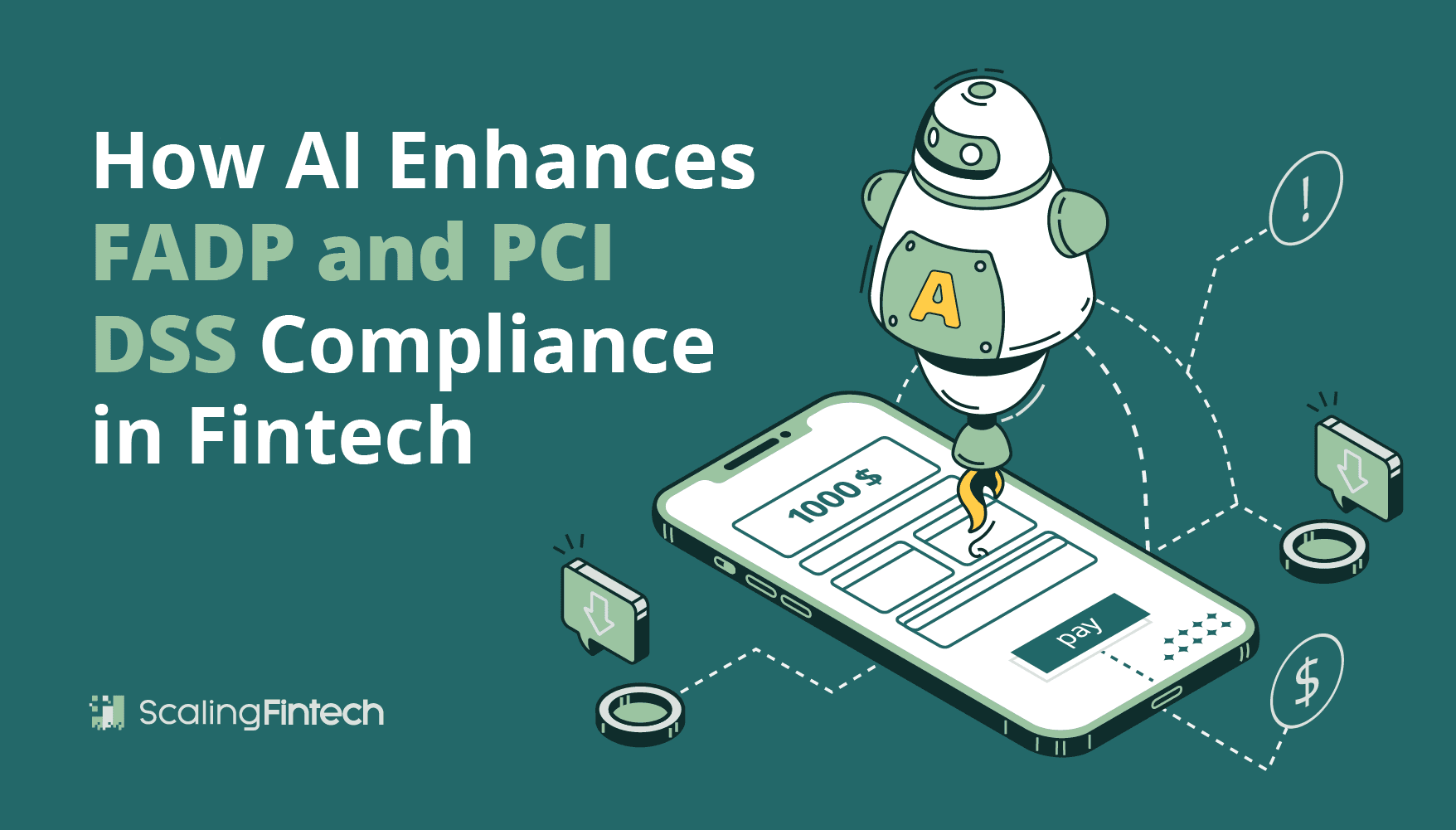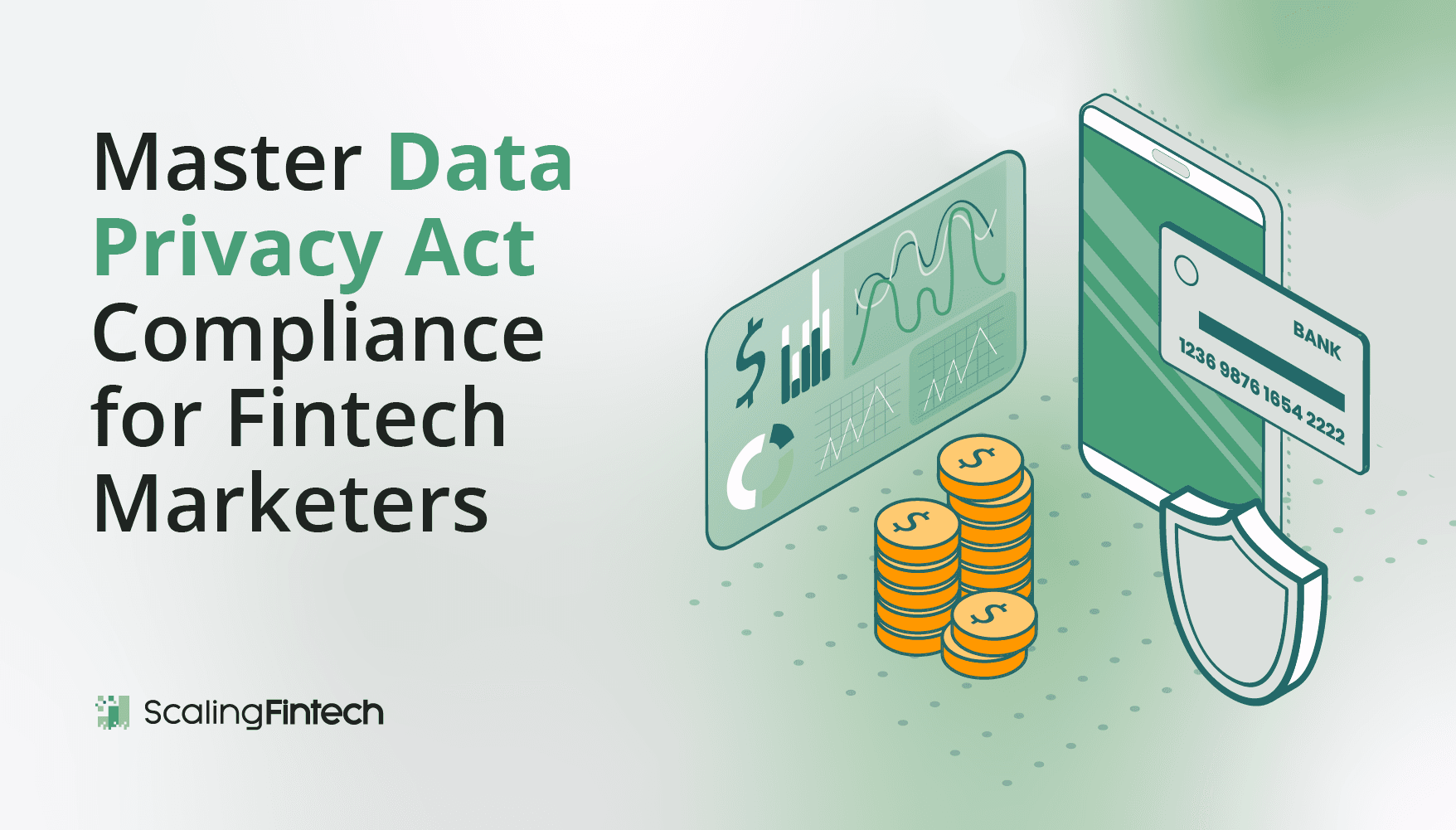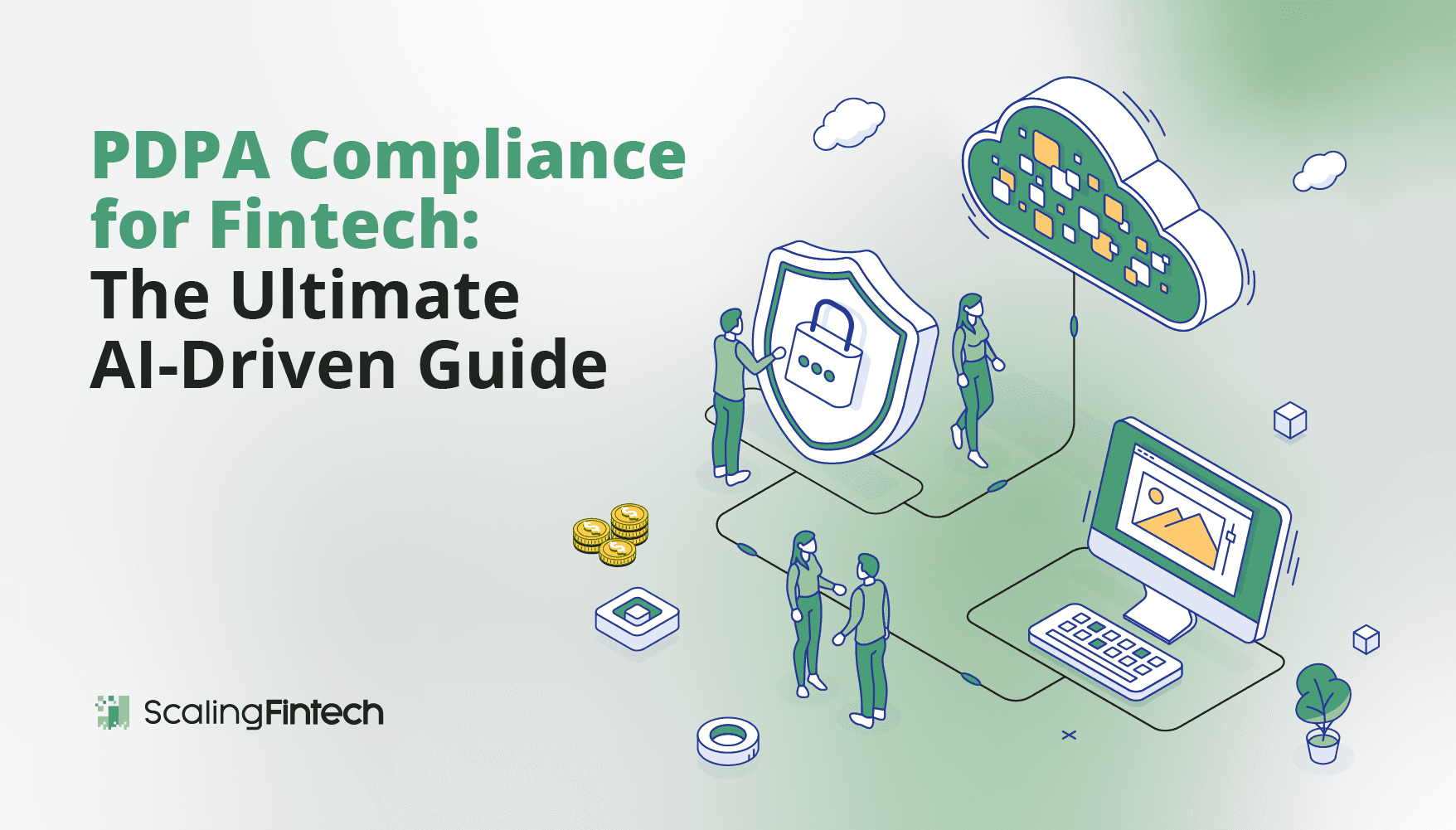Image Source: Scaling FinTech
In this guide, FinTech companies will discover actionable steps to achieve Privacy Act 1988 compliance in Australia, particularly in their marketing practices.
With a focus on safeguarding customer privacy, ensuring consent, and building trust, these best practices help FinTechs navigate compliance challenges while enhancing growth in the context of evolving data privacy laws.
Understanding the Privacy Act 1988 for FinTech
Australia’s Privacy Act 1988 is a critical piece of data protection legislation that mandates how companies handle personal information, especially in data-intensive sectors like FinTech. Compliance with this act is essential, particularly for companies managing sensitive financial data. As privacy Australia regulations continue to evolve, understanding the Privacy Act is crucial for FinTech success.
Core Principles of the Privacy Act 1988
The Privacy Act is based on 13 Australian Privacy Principles (APPs), which dictate data management practices for organizations with over AUD 3 million in annual revenue. These principles form the foundation of data privacy protection and privacy safeguards in Australia. Key responsibilities include:
- Collecting Only Necessary Data: Limit data collection to essential information for services.
- Transparent Data Handling: Ensure customers understand data usage and storage practices.
- Data Security: Implement robust security measures to protect personal information.
- Data Access and Control: Allow customers to view, update, or delete their personal data.
Pro Tip: Regularly audit data collection and storage practices. Remove unnecessary data or implement de-identification techniques to mitigate risks and demonstrate proactive compliance.
Why Privacy Act 1988 Compliance is Essential for FinTech Companies
Amendments to the Privacy Act 1988 have introduced stricter penalties for non-compliance, including fines up to AUD 50 million or three times the financial benefit gained from a data breach. This privacy legislation applies not only to local companies but also to international firms doing business in Australia, making compliance crucial for all FinTech entities.
Example: A global FinTech expanding to Australia must adjust its practices to comply with APP requirements, such as local data storage and updated privacy policies, while also considering broader data privacy regulations like GDPR and CPRA.
Key Compliance Requirements Under the Privacy Act 1988

Image Source: Scaling FinTech
Compliance involves establishing accountability and consistency in data privacy management practices. Key actions include:
- Regular Security Updates: Stay current with data security protocols.
- Transparent Data Policies: Clearly explain data usage, storage, and sharing practices in your data privacy policy.
- Data Breach Reporting: Promptly inform affected users and the OAIC of any notifiable breaches.
Consequences of Non-Compliance: Failure to meet these standards can lead to financial penalties, public disclosure of breaches, and potential reputational damage, affecting consumer trust.
Best Practices for Privacy-Compliant Marketing in FinTech
Privacy-focused marketing can build customer trust and drive growth. With 89% of consumers avoiding companies with weak data protection practices, it’s vital to align marketing with privacy principles:
Developing Privacy-Focused Marketing Strategies
Data privacy should be a cornerstone of every marketing campaign:
- Embed Privacy in Every Campaign: Make privacy a key marketing message.
- Minimize Data Collection: Only collect what is needed, adhering to data privacy compliance standards.
- Regularly Assess Privacy Measures: Conduct routine privacy audits on data protection practices.
- Document Data Handling Practices: Ensure transparency with records.
Example: A FinTech might use simple forms collecting only essential data with a link to its website privacy policy.
Implementing Transparent Communication
Transparency fosters trust. Studies show that 96% of Australians expect prompt disclosure of data breaches. Be upfront about data practices and provide easy access to privacy information.
Pro Tip: Include a “Privacy Information” section in all marketing emails with a link to the privacy policy and options for adjusting data preferences, addressing key privacy policy requirements.
Building Customer Trust with Privacy-First Advertising
Data breaches can significantly impact customer loyalty, with 71% of consumers reducing spending with companies they no longer trust. To maintain consumer privacy and customer data privacy:
- Create Transparent Privacy Policies: Clearly outline data usage.
- Highlight Data Protection in Ads: Reassure customers of your commitment to data privacy and security.
- Avoid Privacy Missteps: 85% of customers say they won’t forgive privacy breaches, even from trusted brands.
Example: Include a privacy statement in online ads to reassure customers about data safety and your commitment to business privacy protections.
Leveraging AI for Privacy Act 1988 Compliance in FinTech Marketing
AI technology is reshaping compliance strategies for FinTech, enabling companies to meet Privacy Act standards effectively. The OAIC requires all AI applications that use personal data to adhere to Privacy Act standards, from initial development to operational use.
Key Privacy Requirements for AI Implementation
- Conduct Privacy Impact Assessments (PIAs): Assess risks before deploying AI.
- Ensure AI Transparency: Communicate AI’s impact on customer data.
- Maintain Accurate Data: Regularly review and update data used in AI systems.
- Integrate Privacy-by-Design: Embed privacy safeguards in AI tools.
Pro Tip: Schedule routine AI reviews to ensure Privacy Act compliance and meet customer expectations, focusing on data privacy management.
Transparency in AI Usage
Ensure your AI systems handle personal data transparently by updating privacy policies to disclose AI usage. High-risk AI Activities require extra safeguards, such as obtaining explicit consent from data holders.
Example: AI-powered FinTech chatbots should clarify their automated nature and explain data usage policies to users, adhering to Open Banking principles.
Selecting AI Solutions for Privacy Act 1988 Compliance
Carefully choosing AI tools is critical for compliance. The OAIC recommends using AI solutions that prioritize privacy and support fintech innovation.
Types of Privacy-Compliant AI Tools
- Automated Privacy Impact Assessments: Assess data risks in real-time.
- Data Governance Monitoring: Ensure data accuracy and security.
- Consent Management Platforms: Manage and track user permissions.
- Privacy-Preserving Machine Learning: Process data securely, supporting data deletion when necessary.
Key Selection Criteria:
- Privacy Assessment Capabilities
- Transparency Features for Automated Decisions
- Data Accuracy Mechanisms
- Comprehensive Consent Management

Image Source: Scaling FinTech
Example: An Australian FinTech implemented an AI compliance system to monitor privacy risks, boosting transparency and trust while adhering to the Consumer Data Right framework.
How Scaling FinTech Can Help with Privacy Act 1988 Compliance
Scaling FinTech offers AI-driven, data-compliant advertising solutions tailored to meet the unique needs of FinTech companies. Our strategies focus on lead generation, conversions, and sustainable growth, all while adhering to strict privacy standards and data-sharing frameworks.
Why Partner with Scaling FinTech?
- Precision: Customized campaigns aligned with growth and compliance goals.
- Transparency: Real-time reporting ensures full visibility into campaign performance.
- Client-Centric Growth: Designed for impact and ROI, putting compliance at the forefront.
Get Started Today: Book a free strategy consultation with Scaling FinTech to discover how Privacy Act 1988 compliance can serve as a competitive edge in the evolving landscape of financial data protection.
Conclusion
Privacy Act 1988 compliance is not just a regulatory requirement but a vital component of FinTech success in Australia. By incorporating privacy into marketing, maintaining transparency, and leveraging AI tools, companies can mitigate compliance risks while strengthening customer relationships.
As privacy reforms continue to shape the industry, staying ahead of data privacy changes is crucial for long-term success.
Ready to boost your privacy compliance and navigate the complex world of data privacy regulations? Schedule a consultation with Scaling FinTech for a tailored, privacy-first growth strategy that aligns with the latest privacy legislation and builds consumer trust.




